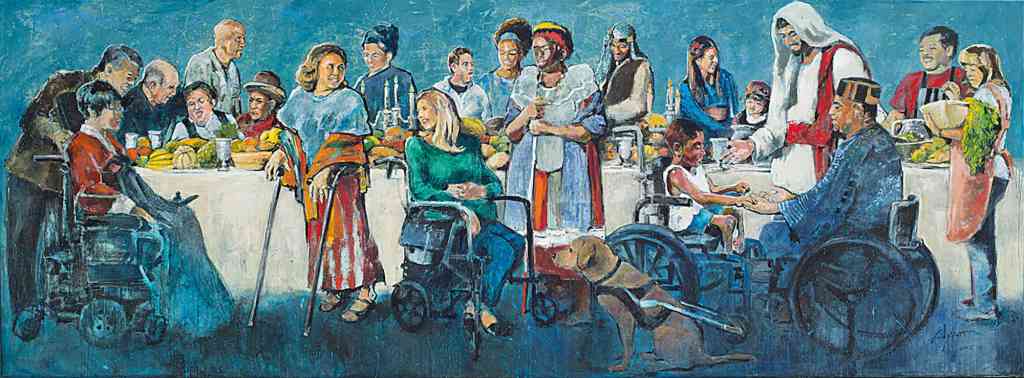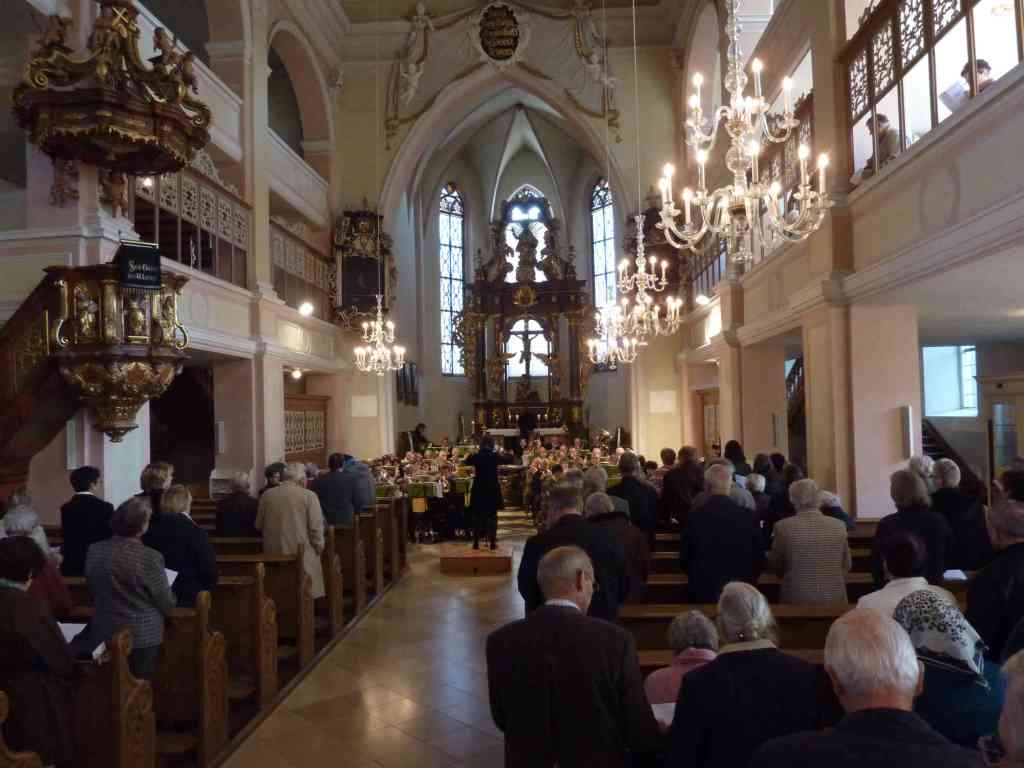Love is very important to Christians. We believe God IS love. Jesus told us to love our neighbours …. and our enemies. And he demonstrated acceptance and care for those not treated well by the culture of his day.
But there are those who miss out today. Those who go to church and don’t feel the love. Those who don’t feel included, but feel rejected, or ignored, or even traumatised.
If you feel concerned for these people and want to do better, please read on!
And if discussion of religious trauma may be triggering to you, please feel free to stop reading now.
I went to a conference last week on the future church and how we might better love those who sometimes feel unloved.
Church hurts some people
The church is supposed to be (among other things) a place of healing, renewal, encouragement and support. Sadly, many people have negative experiences of church, and some are traumatised.
Religious trauma can be caused by spiritual or sexual abuse, by hurtful relationships, by misunderstanding, by oppressive leadership, and more. But this conference focused on how the future of the church can be: decolonising, gender equal, LGBTQIA+ inclusive, intersectional, and thus be trauma informed.
Decolonising
Australia’s First Nations (Aboriginal and Torres Strait Islander) peoples are considered to be the world’s oldest continuous cultures. But just over two centuries ago, their 60,000 years of living their traditional life came to end when European colonisers invaded their countries. Deprived of their land, robbed of their wages and sometimes their children, often hunted down and pushed to the margins, First Nations people struggled to be recognised and accepted for who they were.
Colonisation almost wiped them out, not just in numbers but also in spirit, and left them powerless. The story isn’t all that different in New Zealand, North and South America, and many parts of Africa.
But the First Nations people of Australia have persisted, keeping culture where they have been able, seeking to have the truth of white settlement told and accepted, asking for a treaty with the white invaders and a First Nations voice to government.
And First Nations Christians seek recognition from the church. They want to feel safe to be themselves and keep their identity. They want to feel they belong. They have good things from their culture they would like to offer to the white church.
Decolonising will offer First Nations people opportunities to speak while we whites listen. It will mean recognising the values and worth of black culture and leadership. It will lead to more equal partnerships. It will require apologies and some giving back.
Many First Nations Christians feel hurt by disregard as well as by history. A loving church will address this with compassion, understanding and action.
Gender equal
The Christian church throughout history has most often been patriarchal, just like the secular culture around it. Our scriptures reflect this gender bias, especially in the Old Testament, where women can be the property of their fathers or husbands.
The New Testament continues some of the patriarchy, but also offers the example of Jesus and some teaching showing a more equal way. Traditionalists will likely continue to favour the more obvious male-dominant teachings, but more and more churches are moving towards gender equality.
There are other behavioural teachings in the Bible that we have moved on from, so many think it is reasonable to take these patriarchal teachings as cultural and temporal, and therefore not binding today.
So if a church wants to become gender equal, how might it go about it?
- Tell stories of women using their gifts to engage people with what may be new ideas.
- Read books and use resources written by women as well as men.
- Preaching isn’t the best method of teaching, but if we use it, allow women as well as men. This will require pathways for training and promoting.
- Create support networks for women doing ministries that were previously men’s domain.
- Structural change will be necessay – e.g. re-writing policies & doctrinal statements.
- Some women may decide to leave their congregation or denomination. Others of us can support new ventures.
LGBTQIA+ inclusive
Christian belief and practice has been shown in many studies to have significant wellbeing benefits, including reducing the likelihood for younger people to commit suicide, or even consider it. However the studies also show that religious belief and practice significantly increases the risk that sexual minorities will consider or attempt suicide.
“For queer people, going to church can be risky behaviour.”
Whatever we think is God’s view of LGBTQIA+ sexuality, a loving church needs to be aware of the harm that is being done to queer people in the church, and be conscientious in avoiding hurtful attitudes. A little searching will reveal many accounts of harm done to young lives. This isn’t an isolated problem but a deep and important matter for churches to consider.
The stories we tell, the history we recognise, are important factors in our behaviour. The church’s story is one of growth and inclusion – all nations, all social strata, both genders. Does it also include all sexualities? Queer people don’t make it into church history, but there have been queer people who have served in the church, generally without clarifying their sexuality.
The arguments remain between affiming and non-affirming Christians. The Bible seems to be able to be interpreted in support of either view. Affirming people mostly base their inclusion on God’s love and Jesus’ inclusiveness. They say that the gospel isn’t good news to queers unless it is affirming.
A loving church will take these matters seriously and respond appropriately.
Intersectionality
There are many different areas of potential disadvantage and discrimination. Not just regarding First Nations people, gender equality and LGBTQIA+ inclusion, but also social class, education, non-English speaking background, disability, poverty and neuro-divergence.
Intersectionality is when some of these issues overlap and form complex layers in a person’s life and experience. A loving church will hear the stories of all different kinds of people, and be especially sensitive to the experiences of people from different backgrounds and different experiences.
In this way a loving church will give witness to the God who welcomes all and values all.
Trauma informed
We are much more aware these days of trauma caused by war, stress, abuse and childhood mistreatment. Trauma is an “overly responsive stress mechanism”. Trauma folows an experience where we feel unsafe and have no control. It can be caused by one large event, or the accumulation of smaller events.
The church experience of minorities such as queer people can produce similar trauma symptoms to childhood mistreatment.
Bad experiences of church can result in trauma which can affect people any time they enter a church building, or may be triggered by a worship song or by preaching. Signs of this trauma may include people getting agitated or shutting down.
In stress situations, there are ways to help the mind calm the body (top down), and also a calm body can lead to a calm mind (bottom up). So in churches we can assist people feel less traumatised or uncomfortable by:
- creating a calm, relaxing and welcoming environment (light, sound, tea or coffee, etc);
- help people know they are safe by telling them they are in contol and free to join in or not (e.g. no-one is forced to stand and sing);
- help people feel they are loved and respected, and not judged;
- First Nations people may feel more welcome if there is an acknowledgment of country;
- some churches begin each service with a clear statement of inclusion and welcome.
Loving churches can make visitors’ experience RICH:
Respect is a first step in rebuilding from disconnection.
Information sharing. If people say they’re hurting, we can share the journey with them.
Connection. People can’t easily heal in isolation, so good connection helps.
Hope. We can have hope on behalf of those who have no hope.
The future church?
Loving?
These issues are contentious for many. But let’s start with this. Whatever we believe personally, whatever teaching we experience in our churches, we have some clear truths.
- The Bible says God is love (1 John 4:8).
- Jesus commanded us to love God and love our neighbours (Matthew 22:38-40) and our enemies (Matthew 5:44).
We have no choice but to love people of all sexualities, all ethnicities, and not only want the best for them, but do the best we can for them.
Holy Spirit-guided?
Where the Bible’s teaching is disputed and interpretations differ, standing at a distance and shouting our slogans and arguing the fine meanings of Greek words isn’t likely to be helpful. Stopping the contention and praying for the Spirit’s guidance is more likely to be productive.
Will the future church be loving enough to do that?
A worthwhile conference
At the beginning of the conference, we were told we weren’t expected to agree with everything. Instead we were all urged to listen, keep an open mind, lean in to what we were hearing. This was good advice.
I am still processing and discussing all we heard. I have learnt. I have empathy.
So it was good.
Photo by Elina Fairytale
Other pages on this site

A fresh way to be the church
The church is losing ground in western societies. But what if we followed Jesus’ radical teachings about how to share him with others?

A church more like Jesus?
What can we learn from how Jesus expressed the gospel, how he taught and how he treated people?

Leave a comment